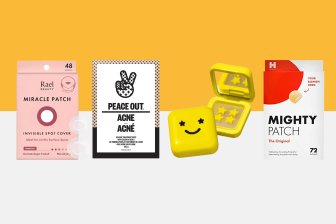A learning resource described as a comprehensive atlas on Indigenous lands, languages and culture in Canada was launched in Toronto on Wednesday after two years of input from the communities it covers.

The Indigenous Peoples Atlas of Canada, which includes a four-volume set of books, an online interactive atlas and other components, was touted as an important educational tool for future generations.
Royal Canadian Geographical Society COO and Canadian Geographic Publisher Gilles Gagnier and Kids Can Press President Lisa Lyons Johnston together with leaders of the Mississaugas of New Credit First Nation and contributing editors gathered in Toronto on Wednesday to launch Canadian Geographic’s long-awaited Indigenous Peoples Atlas of Canada.
READ MORE: How post-secondary schools are working to include Indigenous knowledge in programs, address barriers
The Indigenous Peoples Atlas of Canada was a Canada 150 project funded by the Government of Canada.
The atlas includes information on Indigenous communities, languages, education, treaties and lands. It also addresses topics such as residential schools, colonization, racism and cultural appropriation.
“As the country’s voice for geography, the RCGS’ mandate is to make Canada better known to Canadians and to the world,” said Gagnier. “The Indigenous Peoples Atlas of Canada tells the story of this land and its peoples in the most important way it has ever been told. It is a multilingual, collaborative educational project that is national in scope, and the product of incredible contributions made by people from around the country, some of whom joined us at the launch in Toronto today.”
READ MORE: ‘Labour of love’ to map North America’s missing, murdered Indigenous women
- What is a halal mortgage? How interest-free home financing works in Canada
- Capital gains changes are ‘really fair,’ Freeland says, as doctors cry foul
- Ontario doctors offer solutions to help address shortage of family physicians
- Budget 2024 failed to spark ‘political reboot’ for Liberals, polling suggests
The Atlas content has been produced in partnership with the Assembly of First Nations, Inuit Tapiriit Kanatami, the Métis National Council, the National Centre for Truth and Reconciliation, and Indspire.
The Indigenous Peoples Atlas of Canada was created in response to the Truth and Reconciliation Commission’s Calls to Action, which cites the development of culturally appropriate curricula for Indigenous students as a top priority.
It includes a four-volume print atlas, an online interactive atlas with an accompanying app, giant floor maps and various other educational resources for classrooms.
READ MORE: Inaugural ‘Indigi-Con’ could become annual event
“I dare say that from an education perspective this resource offers the most unique and exciting opportunities that we have ever seen related to the foundational shift that the Truth and Reconciliation Commission of Canada called for in their final report in 2015,” said Indigenous Education Advocate Charlene Bearhead, who was the Educational Lead on the Indigenous Peoples Atlas of Canada. “Most importantly we now have these incredible resources to support the work that Indigenous peoples have called upon us to honour for over 150 years.”
“It is a beautiful and proud thing to be Indigenous,” added Julian Brave NoiseCat, member of the Canim Lake Band in BC and a contributing editor to the Indigenous Peoples Atlas of Canada. “This atlas brings together voices from First Nations, Métis and Inuit communities, representing the diversity of intellect and profundity of tragedy, comedy and triumph in Indigenous communities from Tkaronto to Tuktoyaktuk and Victoria to Val d’Or.”
Award-winning children’s publisher Kids Can Press is the global distributor of the Indigenous Peoples Atlas of Canada, which President Lisa Lyons Johnston described as “so much more than an atlas, the gorgeous, 4-volume set of books can more accurately be described as an encyclopedia. Kids Can Press is very proud to be associated with this ambitious project and our hope is that our extensive sales, distribution and marketing reach will help ensure that the atlas and the slate of educational resources are made available to schools, libraries and bookstores not just here in Canada but also around the world.”
READ MORE: 2018 Indigenous Day Live promises music, dancing and more to bring Canadians together
The Indigenous Peoples Atlas of Canada teaching resources will be made available to all Indigenous schools through the partners’ distribution channels and to more than 20,000 Canadian Geographic Education members in the fall of 2018.
The four-volume set of books will be sold and distributed by Kids Can Press, through an exclusive partnership with Canadian Geographic, that will enable this important resource to be made available not only across Canada but around the world.
— With files from the Canadian Press







Comments